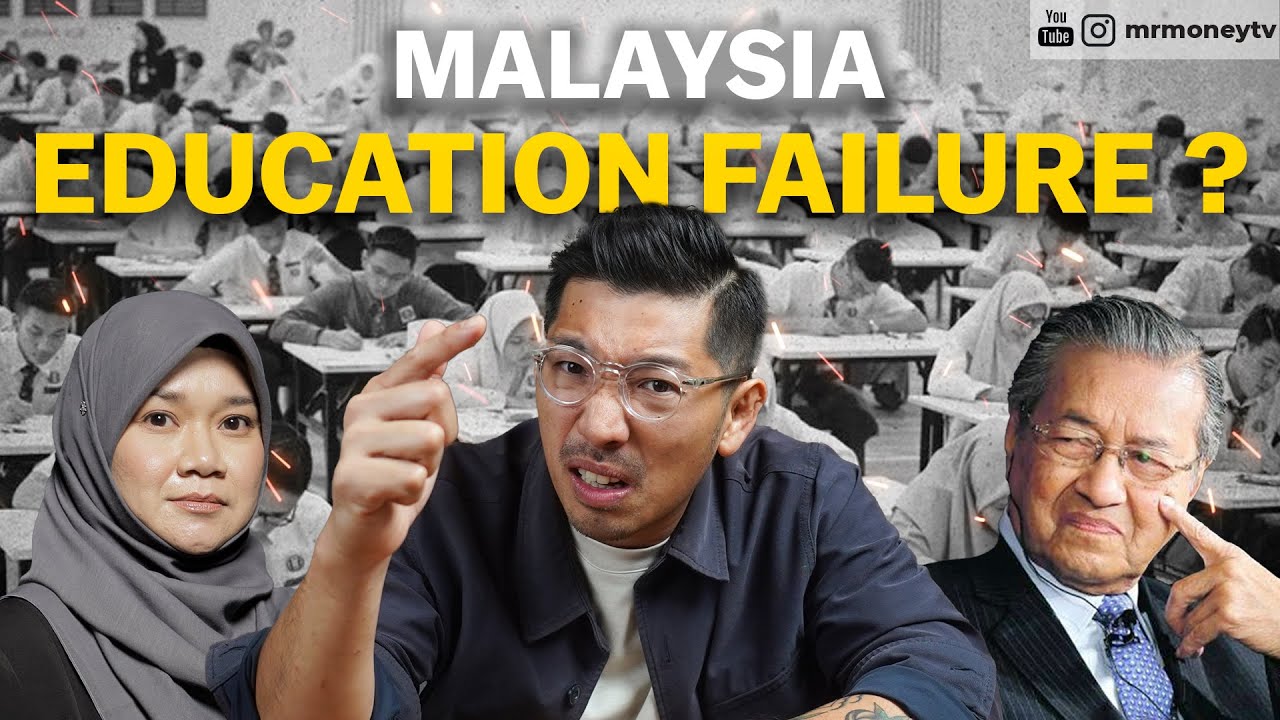Alunos brasileiros têm dificuldade em matemática e leitura | MANHÃ TOTAL
Summary
TLDRThe 2022 PISA results reveal concerning trends in Brazil's education system, with students struggling in mathematics and reading, partly due to the impact of the COVID-19 pandemic. Despite no significant decline since 2018, Brazil remains at the bottom of global education rankings. Key issues include a lack of investment, limited resources in schools, and declining teacher motivation. Psychopedagogue Eliane Santa Cecília emphasizes the importance of early childhood education, better teacher support, and encouraging reading at home to improve learning outcomes. The solution lies in increased government investment and a cultural shift towards valuing education at every level.
Takeaways
- 😀 Brazilian students' performance in PISA assessments (2022) was disappointing, especially in math and reading.
- 😀 Despite not worsening from 2018 results, Brazil's educational ranking remains low globally, highlighting a need for improvement.
- 😀 The pandemic is considered a major factor that worsened students' learning outcomes in recent years.
- 😀 A significant percentage of Brazilian students struggled with basic math tasks, such as operations and measurement conversions.
- 😀 Poor literacy and mathematical skills can limit future opportunities, including in daily tasks, careers, and personal growth.
- 😀 More investment is needed in education, including government support at federal, state, and municipal levels.
- 😀 Public libraries need to be better funded, and the cost of books should be reduced to make reading materials accessible to all.
- 😀 Parents need to be more engaged in their children's education, encouraging reading and providing learning resources at home.
- 😀 Teacher training and motivation are critical, as many educators are leaving the profession due to low pay and lack of incentives.
- 😀 There is a concerning trend of students moving away from teaching careers, which could lead to a shortage of qualified educators in the future.
- 😀 The importance of nurturing a culture of reading and logical reasoning at an early age, particularly through books, should not be overlooked.
Q & A
What recent findings were presented in the PISA report about Brazilian students?
-The PISA report revealed that Brazilian students performed poorly in mathematics and reading. Despite not falling further compared to the 2018 results, the performance remains low, highlighting a persistent issue in the country's education system.
What factors have contributed to the struggles in Brazilian education?
-One of the key factors contributing to these struggles is the impact of the pandemic, which disrupted learning and exacerbated existing issues in education.
How did Brazilian students perform in mathematics according to the PISA report?
-In mathematics, nearly 70% of Brazilian students were unable to solve basic problems, including simple operations and conversions, which is a cause for concern about their future academic and personal development.
Why is the performance in mathematics particularly concerning?
-The lack of basic mathematical skills is worrying because mathematics is essential for everyday tasks, professional development, and critical thinking. Without it, students struggle with interpreting information, analyzing situations, and participating fully in society.
What are some suggested measures to improve the education system in Brazil?
-Experts suggest more investment from federal, state, and municipal governments, increased accessibility to books and educational materials, and the creation of more libraries. Additionally, families are encouraged to foster a reading culture at home.
How do Brazilian students currently engage with reading material outside of school?
-Outside of school, many Brazilian students read very little. There is a lack of access to diverse reading materials, and the reading habits of students are often limited to textbooks or assigned literature.
What role do teachers play in improving literacy and mathematical skills?
-Teachers are crucial in fostering literacy and mathematical skills. They need to be well-trained, motivated, and adequately supported to inspire students, encourage critical thinking, and improve academic performance.
What challenges do teachers face in Brazilian schools?
-Teachers face numerous challenges, including a lack of motivation, low pay, and the increasing violence within schools. These factors make it difficult to provide quality education, especially in overcrowded classrooms.
How can parents help improve the educational outcomes of their children?
-Parents can play a key role by encouraging reading at home, providing books and materials for creative activities, and fostering a supportive environment that values learning. Early exposure to books and the act of reading can make a significant difference.
What does the future of education look like in Brazil given the current trends?
-The future of education in Brazil is uncertain, with fewer students pursuing teaching degrees and many teachers migrating to other fields. This shortage of qualified educators poses a risk to the quality of education in the coming years, making it essential to address these systemic issues.
Outlines

هذا القسم متوفر فقط للمشتركين. يرجى الترقية للوصول إلى هذه الميزة.
قم بالترقية الآنMindmap

هذا القسم متوفر فقط للمشتركين. يرجى الترقية للوصول إلى هذه الميزة.
قم بالترقية الآنKeywords

هذا القسم متوفر فقط للمشتركين. يرجى الترقية للوصول إلى هذه الميزة.
قم بالترقية الآنHighlights

هذا القسم متوفر فقط للمشتركين. يرجى الترقية للوصول إلى هذه الميزة.
قم بالترقية الآنTranscripts

هذا القسم متوفر فقط للمشتركين. يرجى الترقية للوصول إلى هذه الميزة.
قم بالترقية الآنتصفح المزيد من مقاطع الفيديو ذات الصلة
5.0 / 5 (0 votes)






